College of Education and Human Ecology (EHE)
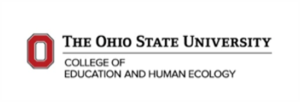
The College of Education and Human Ecology (EHE) at the Ohio State University has helped shape education and human development locally, nationally and globally for more than 125 years.
Since 1895, EHE has played an important role in education and human development at The Ohio State University. We’ve helped improve education at all levels in the United States and around the world. They’ve driven innovation in exercise and nutrition and prepared workforces for evolving economies for generations.
Their more than 125-year history has forged bold paths that have advanced students, children and communities. As they lay new initiatives for the future, they are committed to creating impactful change in early childhood, urban, rural and STEAM education, health and economic vitality, and global engagement.
Dean Don Pope-Davis
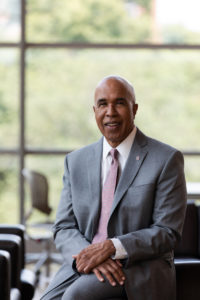
Don Pope-Davis (PhD, Stanford University) is Dean of the College of Education and Human Ecology at The Ohio State University. He is passionate about using higher education to address issues of equity, economic growth and the psychological well-being of educators and students.
An educator for more than 25 years, he previously was dean of the College of Education at New Mexico State University, a Hispanic-serving institution. He also served in senior-level positions at the University of Notre Dame. Pope-Davis’ work on religious attitudes, multicultural competence and unintentional racism in counseling is widely published in peer-reviewed journals. He is an elected Fellow of the American Psychological Association’s Society for Psychological Study of Ethnic Minority Issues and a Fellow of the Society of Counseling Psychology.
His most recent book, published by Cambridge University Press, examines the attitudes of Black Catholics in America. He is president-elect of the Council of Academic Deans from Research Education Institutions (CADREI), a member of the steering committee of Deans for Social Justice and Equity in Education and past chair of the American Psychological Association’s Committee of Ethnic Minority Affairs.
Office for Research, Innovation and Collaboration (ORIC)

The Office of Research, Innovation and Collaboration (ORIC) in the College of Education and Human and Ecology, The Ohio State University works closely with faculty, staff, students and administration in the College of Education and Human Ecology to secure funds and provide post-award support for researchers. ORIC has three program cores: Proposal and Research Management Core, School and Community Research Engagement Core, and the Data Access and Analysis Core. The staff associated with these three cores provide services and resources to support the research needs of the College of Education and Human Ecology faculty, research staff, postdocs and students. ORIC is associated with the following support services: Quantitative Methodology Center, QualLab, EHE Institutional Research, Outreach and Research Engagement.
Quantitative Methodology Center

The mission of the Quantitative Methodology Center (QMC) is to build the quantitative research capacity of EHE faculty, students, post-docs, visiting scholars, and staff. The QMC provides free consulting for the faculty, students, staff, post-doctoral researchers, and visiting scholars in EHE. Their goal is to provide capacity-building assistance to help EHE researchers conduct their own research with rigor and confidence. They consult with EHE researchers on any topic related to quantitative methodology. They additionally hold speaker series events and workshops to inform educational researchers about current practices in statistical methodology.
Quantitative Research, Evaluation and Measurement Program (QREM)
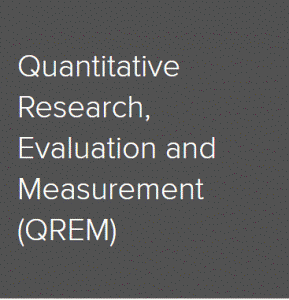
The Quantitative Research, Evaluation Measurement (QREM) program is an academic program housed under the Department of Educational Studies in the college of Education and Human Ecology. The QREM program at Ohio State prepares graduate students to apply statistics and mathematical principles while measuring and evaluating issues, methods and new ideas in education, government and business settings.
Co-Sponsors
Center on Education and Training for Employment
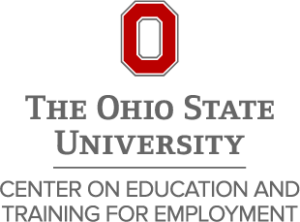 The Center on Education and Training for Employment (CETE) is a translational research center operating within The Ohio State University’s College of Education and Human Ecology. CETE is guided by a dynamic strategic plan and a vision to propel the center’s expertise in workforce, community engagement and education to contribute to the health of urban and rural communities that support well-being and economic prosperity. CETE bridges research and practice through work in assessment, equity, engagement and evaluation, corrections education, curriculum and training, professional learning for educators, family engagement and online learning.
The Center on Education and Training for Employment (CETE) is a translational research center operating within The Ohio State University’s College of Education and Human Ecology. CETE is guided by a dynamic strategic plan and a vision to propel the center’s expertise in workforce, community engagement and education to contribute to the health of urban and rural communities that support well-being and economic prosperity. CETE bridges research and practice through work in assessment, equity, engagement and evaluation, corrections education, curriculum and training, professional learning for educators, family engagement and online learning.
Global One Health Initiative, Office of International Affairs
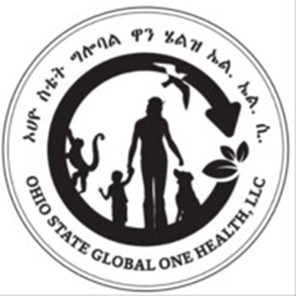
The Global One Health Initiative (GOHi) in The Ohio State University’s Office of International Affairs, is the university’s largest interdisciplinary example of institutional teamwork. Operating globally with consortium partners from Brazil, Ethiopia, Kenya, Mexico, Tanzania, Thailand, and Uganda, GOHi seeks to expand capacity for a One Health approach through applied education, training, research, and outreach. GOHi aims to bring together multiple disciplines working globally to address the spread of disease, promote health, and emphasize the connection among humans, animals, and the environment more efficiently and effectively.
Kirwan Institute for the Study of Race and Ethnicity

The Kirwan Institute for the Study of Race and Ethnicity is an interdisciplinary engaged research institute at The Ohio State University established in May 2003. Named for former university president William E. “Brit” Kirwan in recognition of his efforts to champion diversity at OSU, the Kirwan Institute seeks to create a just and inclusive society where all people and communities have opportunity to succeed. Through research, engagement, and communication, the Kirwan Institute connects individuals and communities with opportunities needed to thrive by educating the public, building the capacity of allied social justice organizations, and investing in efforts that support equity and inclusion.
Office of Equity, Diversity, and Global Engagement in the College of Education and Human Ecology (EHE EDGE)
The Office of Equity, Diversity, and Global Engagement in the College of Education and Human Ecology (EHE EDGE) is directed by Dr. Noelle Arnold. The office develops, promotes and supports dynamic programming to encourage critical thinking and action about diversity, equity and inclusion. Those who are affiliated with the EHE EDGE engage in high-quality research, outreach and advocacy to advance social, civil and educational rights.
Office of Diversity and Inclusion at Ohio State University
 The Ohio State University Office of Diversity and Inclusion (ODI) supports the recruitment, retention and success of students, faculty and staff who enhance the diversity of The Ohio State University. ODI oversees the Frank W. Hale Jr. Black Cultural Center, the Todd Anthony Bell National Resource Center on the African American Male, the Louis Stokes Alliances for Minority Participation (LSAMP) Program, the nine-city Young Scholars Program, as well as being home to a wide-range of retention, mentoring, scholarship, and access programs. The Office of Diversity and Inclusion advances diversity, equity and inclusive excellence throughout the university enterprise by implementing student recruitment, retention and success programs, supporting faculty and staff initiatives, and partnering with campus and community stakeholders in the United States and beyond.
The Ohio State University Office of Diversity and Inclusion (ODI) supports the recruitment, retention and success of students, faculty and staff who enhance the diversity of The Ohio State University. ODI oversees the Frank W. Hale Jr. Black Cultural Center, the Todd Anthony Bell National Resource Center on the African American Male, the Louis Stokes Alliances for Minority Participation (LSAMP) Program, the nine-city Young Scholars Program, as well as being home to a wide-range of retention, mentoring, scholarship, and access programs. The Office of Diversity and Inclusion advances diversity, equity and inclusive excellence throughout the university enterprise by implementing student recruitment, retention and success programs, supporting faculty and staff initiatives, and partnering with campus and community stakeholders in the United States and beyond.
Office of Outreach and Engagement at Ohio State University

The Office of Outreach and Engagement at Ohio State University strives to solve societal challenges through meaningful partnerships between faculty, staff, students, and the people of the institutions of Ohio, the nation, and the world. These partnerships foster greater integration of university and community resources, leading to enhanced efficiency and impact.
Office of Research at Ohio State University
 The Office of Research, led by Vice President for Research at Ohio State Dr. Peter Mohler, has responsibility for strategic planning and infrastructure support for the university’s $1.236 billion annual basic and applied research program. This includes responsibility and compliance, laboratory facilities and oversite, and innovative, creative research that spans from the human genome to the chocolate lining of an ice cream cone. The Office of Research values innovation, excellence, collaboration, diversity, integrity, and engagement. Ohio State’s research and creative expression community is committed to defining and addressing the world’s most pressing challenges though the creation and dissemination of new knowledge. The Office of Research supports, advances and safeguards these research, scholarly and creative pursuits conducted by our faculty, staff and students. We also provide strategic direction and a unified voice for Ohio State’s research interests locally, nationally and internationally.
The Office of Research, led by Vice President for Research at Ohio State Dr. Peter Mohler, has responsibility for strategic planning and infrastructure support for the university’s $1.236 billion annual basic and applied research program. This includes responsibility and compliance, laboratory facilities and oversite, and innovative, creative research that spans from the human genome to the chocolate lining of an ice cream cone. The Office of Research values innovation, excellence, collaboration, diversity, integrity, and engagement. Ohio State’s research and creative expression community is committed to defining and addressing the world’s most pressing challenges though the creation and dissemination of new knowledge. The Office of Research supports, advances and safeguards these research, scholarly and creative pursuits conducted by our faculty, staff and students. We also provide strategic direction and a unified voice for Ohio State’s research interests locally, nationally and internationally.
Translational Data Analytics Institute
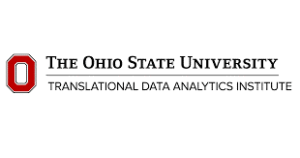
The Translational Data Analytics Institute (TDAI) at The Ohio State University is committed to interdisciplinary, data-enabled research, and creative expression for the greater good. Through their communities of practice, TDAI convenes Ohio State faculty with diverse specialties to collaborate on team science and advance research agendas around specific topics and societal challenges. TDAI also works with other OSU entities and resources, as well as partners in industry and the community, to advance interdisciplinary science, scholarship, and creative expression by supporting interdisciplinary research teams.

